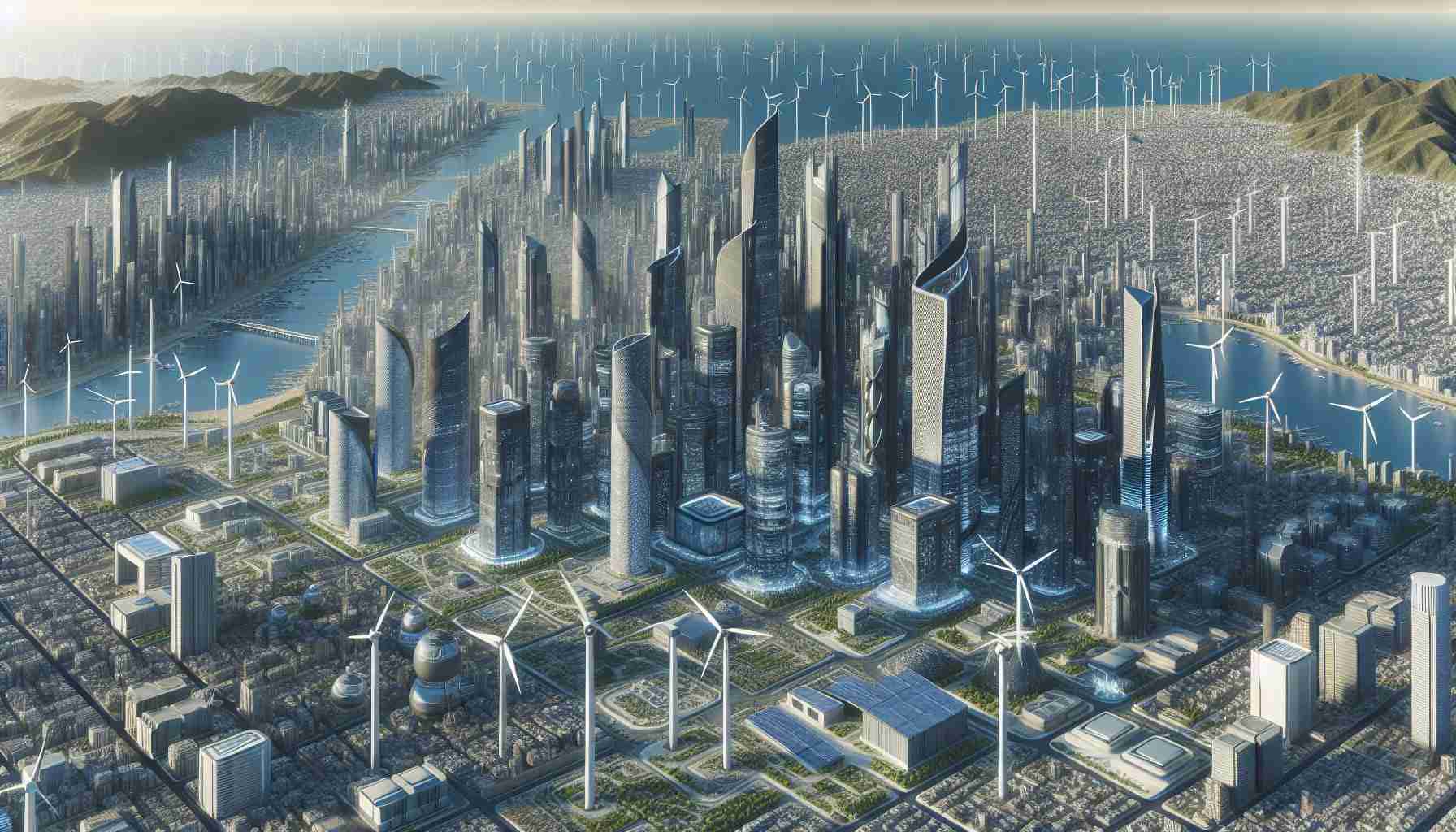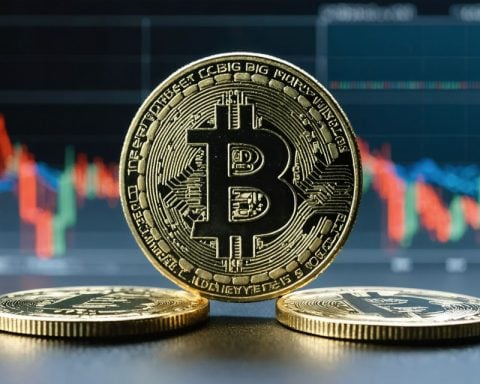In the heart of China lies Yibin, a city transformed in just four years. Once primarily known for its coal production and traditional baijiu liquor, Yibin has now earned the title, “Capital of Power Batteries” due to its significant role in the production of electric vehicle (EV) batteries.
This rapid development has brought wealth and opportunity; however, local officials are now expressing concerns about market saturation within the battery industry. To combat this stagnation, Yibin is pivoting towards another avenue in the clean energy landscape: solar power.
Recognizing the importance of diversification in the energy sector, the city is not only aiming to maintain its economic momentum but also to contribute to China’s broader goals of reducing carbon emissions. Yibin’s strategic decision reflects a growing trend among manufacturing hubs to embrace and invest in renewable energy sources to secure a sustainable future.
The city’s shift towards solar energy underlines a significant commitment to clean technology. As Yibin endeavors to become a leader in solar power, it illustrates the potential of cities to adapt and innovate in the face of changing market dynamics. With this dual focus on batteries and solar technology, Yibin is positioning itself as a key player in the global transition to sustainable energy solutions.
Yibin’s Clean Energy Evolution: A Broader Perspective
Yibin’s transformation from a coal-centric city to a burgeoning hub for electric vehicle (EV) batteries and now solar power is emblematic of a larger trend affecting the global economy and environmental landscape. As cities worldwide invigorate their economies by shifting towards clean energy, Yibin’s evolution signals a critical pivot in China’s industrial narrative, where reliance on traditional energy sources is being challenged.
This shift holds profound implications for society and culture. Communities previously reliant on fossil fuels are increasingly embracing clean technologies, which fosters innovation and can revitalize local economies. It also cultivates a culture of sustainability, encouraging residents to prioritize environmentally friendly practices, thereby influencing future generations.
From an environmental standpoint, the long-term significance of Yibin’s dual focus on batteries and solar energy cannot be understated. As the world grapples with climate change, cities like Yibin demonstrate the potential of localized shifts in energy production to significantly reduce carbon emissions. Furthermore, Yibin’s initiative mirrors global trends where diverse energy portfolios become essential for energy security.
Looking forward, we may observe a ripple effect as other regions pursue similar paths, highlighting a global shift towards renewable energy that promises not only to enhance economic resilience but also to safeguard the environment for future generations. Yibin’s journey serves as a testament to the power of adaptive strategies in fostering both economic and ecological sustainability.
Yibin: From Battery Capital to Solar Energy Pioneer
Yibin, a city in China, has dramatically transformed its economic landscape over the past four years. Formerly centered around coal production and the traditional liquor baijiu, Yibin has emerged as the “Capital of Power Batteries” due to its substantial contributions to the electric vehicle (EV) battery sector. This swift shift to battery production has significantly impacted the local economy, bringing wealth and new opportunities to the region.
Economic Impact of the Battery Industry
The electric vehicle market’s rapid growth has positioned Yibin as a crucial player in the battery manufacturing industry. However, local officials are growing increasingly aware of the risks associated with market saturation. The surge in battery production facilities has raised alarms about potential overcapacity, compelling Yibin to consider diversification strategies.
Pivoting to Solar Power
As a response to the challenges faced by the battery sector, Yibin is now strategically focusing on solar energy. This transition aligns with China’s broader ambitions to decrease carbon emissions and foster sustainable development. By investing in solar technology, Yibin aims to maintain its economic growth while making meaningful contributions to renewable energy production.
Renewable Energy Trends
The global energy landscape is evolving, with many manufacturing hubs recognizing the need to diversify their energy portfolios. Yibin’s shift towards solar energy is part of a larger trend where cities are increasingly turning to clean technologies. This move not only aids in securing a sustainable future but also positions these cities within competitive markets driven by concern for environmental impacts.
Features of Yibin’s Solar Initiative
1. Infrastructure Investment: Yibin is investing in solar panel manufacturing facilities and infrastructure to support the growth of solar energy.
2. Research and Development: The city is prioritizing R&D initiatives to innovate solar technologies and improve energy efficiency.
3. Public-Private Partnerships: Collaborations between local government and private enterprises are fostering investment in solar projects.
Environmental Sustainability Goals
Yibin’s commitment to clean energy reflects China’s broader goals of achieving peak carbon emissions before 2030 and reaching carbon neutrality by 2060. The transition into solar energy supports these national strategies and contributes to the global discourse on climate change mitigation.
Limitations and Challenges
Despite its ambitious goals, Yibin faces challenges in its dual commitment to both battery and solar energy production, including:
– Market Saturation Risk: As mentioned, the risk of oversupplies in the battery market could hinder further investments.
– Technology Adoption: Transitioning to solar energy requires significant investment in new technologies and skills that may be lacking locally.
– Regulatory Hurdles: Navigating governmental regulations and policies can complicate rapid transitions.
Future Predictions and Insights
As Yibin continues its journey toward becoming a dual hub for both battery and solar technology, market analysts predict that such diversification will enhance its resilience against downturns in either sector. The city may serve as a model for similar industrial centers looking to balance traditional manufacturing with green energy initiatives.
Conclusion
Yibin’s rapid evolution from a coal-centered economy to a leader in renewable energy reflects the broader trends in global energy innovation. With its strategic pivot to solar power, Yibin is beginning a new chapter that showcases the potential for cities to adapt and thrive amid evolving market dynamics. As the city positions itself as a key player in the global clean energy landscape, it serves as an example of how local initiatives can align with national sustainability goals.
For more information about trends in renewable energy, visit World Energy Council.


















